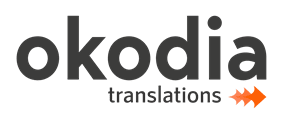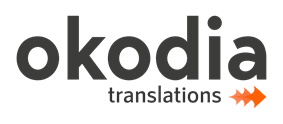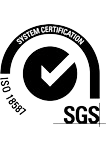The language services industry is a thriving and dynamic sector, offering a wealth of opportunities for linguists and translators. As the world becomes increasingly interconnected, the demand for professionals skilled in bridging language barriers continues to rise. In this article, we delve into the exciting careers available in this field, drawing insights and recommendations from Jooble, a leading international job search platform.
Understanding Translator Careers
What makes a translation career?
A translation career is a rewarding and versatile path that allows language professionals to bridge the gap between different cultures and facilitate effective communication across borders. Translators play a crucial role in today’s globalized world, enabling the exchange of ideas, information, and knowledge among diverse communities. Their work is essential for businesses, governments, and organizations seeking to expand their reach and connect with international audiences. According to the Bureau of Labor Statistics, employment of translators and interpreters is projected to grow by 20% from 2021 to 2031, much faster than the average for all occupations.
What does it take to become a translator?
To become a successful translator, individuals must possess a unique combination of skills and qualifications. Fluency in at least two languages, including their mother tongue and one or more foreign languages, is an essential prerequisite. However, being bilingual is merely the starting point. Translators must have an in-depth understanding of the cultural nuances, idioms, and expressions associated with each language they work with. Additionally, they need excellent writing skills in the target language to ensure accurate and natural-sounding translations.
What to study to become a translator?
Key Skills and Qualifications for Translators
While language proficiency is the foundation, aspiring translators often pursue specialized education in translation studies or related fields. Many universities offer postgraduate-level qualifications, such as master’s degrees or diplomas in translation and interpreting. These programs provide rigorous training in translation theory, techniques, and best practices, equipping students with the necessary skills to excel in the profession. According to a survey by the Chartered Institute of Linguists, nearly 70% of professional linguists hold a postgraduate qualification.
Additionally, translators benefit from continuous professional development opportunities, including workshops, seminars, and online courses offered by translation agencies, language service providers, and professional bodies. These resources help translators stay up-to-date with industry trends, emerging technologies, and specialized terminology in their areas of expertise.
How to become a translator?
Translator Career Paths and Opportunities
The translation industry offers a diverse range of career paths and opportunities. Many translators work as freelancers, allowing them the flexibility to choose their projects and clients. According to industry estimates, approximately 30% of translators are self-employed or freelance. Others may seek employment with translation agencies, language service providers, international governments, corporate education members, or companies like Netflix, where they can specialize in specific domains or industries. Job search platforms like Jooble can be a valuable resource for finding Netflix translator jobs and other in-house positions in the language services sector.
Connecting with the Professional Community
Networking and connecting with the professional translation community is crucial for success in this field. By joining professional associations and attending industry events, translators can forge valuable connections, stay informed about job opportunities, and gain insights from experienced professionals. These organizations also offer certification programs, which can further validate a translator’s skills and enhance their credibility. Jooble’s job search platform can also help translators connect with potential employers and stay informed about the latest job openings in the industry.
Staying Competitive as a Translator
In an ever-evolving industry, staying competitive is essential for translators. Continuous learning and professional development are key to staying abreast of new technologies, industry trends, and subject matter expertise. Many translators specialize in specific domains, such as legal, medical, technical, or literary translation, to differentiate themselves and provide focused services to clients. According to a survey by the American Translators Association, over 60% of translators specialize in at least one specific subject area.
Securing Translator Jobs: Tips and Resources
To secure translator jobs, both freelance and in-house, it is crucial to build a strong portfolio showcasing your language skills, subject matter expertise, and exceptional translation work. Online job boards, such as Jooble, can be valuable resources for finding translation opportunities worldwide. Additionally, networking with translation agencies, attending industry events, and actively promoting your services can help you connect with potential clients and expand your professional network.
Evolution of Translation Technology
Optimizing Translation Workflow
The language services industry has witnessed significant technological advancements in recent years, impacting the way translators work. Computer-assisted translation (CAT) tools, machine translation software, and specialized translation management systems have revolutionized the translation workflow, improving efficiency and consistency. Industry experts estimate that the adoption of translation technology has increased productivity by up to 40% in some cases.
Translating Web Pages: Best Practices
As the digital landscape continues to expand, the demand for translating web pages and online content has surged. Translators must adapt to the unique challenges of translating for the web, such as ensuring proper formatting, handling multimedia elements, and optimizing for search engine visibility. According to the Web Globalization Report Card, only 25% of leading global websites offer content in multiple languages, highlighting the growing need for web translation services.
Automating Your Translation Process
While machine translation is not a substitute for human translators, it can be a valuable tool when used judiciously. By leveraging machine translation in combination with post-editing and quality assurance processes, translators can streamline their workflows and increase productivity. However, it is essential to maintain a critical eye and ensure that the final product meets the highest quality standards. A study by the European Commission found that combining machine translation with human post-editing can reduce translation costs by up to 40%.
In conclusion, the language services industry offers a wealth of opportunities for linguists and translators. By continuously developing their skills, staying abreast of industry trends, and leveraging the power of technology, translators can thrive in this dynamic and rewarding field, facilitating cross-cultural communication and contributing to a more connected global community.
About the author:
Viktoriia Dubinchuk – Partnerships Manager with over three years of dedicated service at Jooble. Armed with a Bachelor’s degree in Philosophy and Religious Studies, she has both analytical thinking and interpersonal skills, which are helpful in her professional life. Victoria has a passion for establishing meaningful connections and this helps her set up successful partnerships at Jooble.













